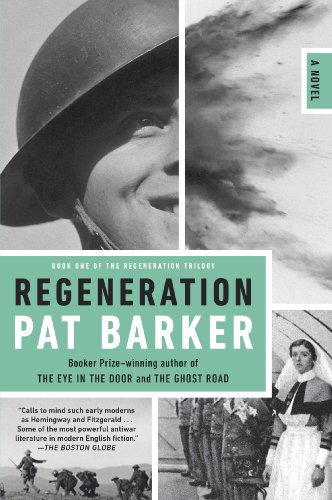All Nonfiction
- Bullying
- Books
- Academic
- Author Interviews
- Celebrity interviews
- College Articles
- College Essays
- Educator of the Year
- Heroes
- Interviews
- Memoir
- Personal Experience
- Sports
- Travel & Culture
All Opinions
- Bullying
- Current Events / Politics
- Discrimination
- Drugs / Alcohol / Smoking
- Entertainment / Celebrities
- Environment
- Love / Relationships
- Movies / Music / TV
- Pop Culture / Trends
- School / College
- Social Issues / Civics
- Spirituality / Religion
- Sports / Hobbies
All Hot Topics
- Bullying
- Community Service
- Environment
- Health
- Letters to the Editor
- Pride & Prejudice
- What Matters
- Back
Summer Guide
- Program Links
- Program Reviews
- Back
College Guide
- College Links
- College Reviews
- College Essays
- College Articles
- Back
Regeneration by Pat Barker
Regeneration By Pat Barker (1991)
The 250 page novel centers around the war-time hospital Craiglockhart in the Scottish city of Edinburgh. It follows the story of the pacifist poet Siegfried Sassoon and his doctor, Dr. W.H.R or Rivers. It develops into Wilfred Owen's relationship and hero-worship of Sassoon and River's journey and difficulty treating patients with the psychological scars of war.
The Novel excellently explores the themes of suicide, psychological disorder, cowardice and of course, regeneration. The book is mainly based on real life which makes the themes even more shocking, this is truly a book that will change your views of war. Though it's not the main theme of the book is Owen and Sassoon's relationship certainly plays a part. Owen seeks Sassoon's, famous poet at the time, help with such classic war poems as 'anthem for doomed youth'. The constant flicking between fact and fiction adds to the feeling that you're reading a re-enactment rather than a novel written years after the end of the war. This is enhanced by the cold, bluntness of Barker's writing about the harsh truth of world war one and it's hospitals.
Though the dark themes are beautifully and insight-fully explored this war novel certainly seems to lack war. Yes the patients, and sometimes the doctors are suffering from war neurosis the war just feels like a time for the novel to be set rather than a novel about the war. Pat Barker didn't write this book until 1991, and wasn't even born until 1943, 29 years after the war. It also seems to concentrate more on River's journey as he tries to cure patients than the war (not that this is always a bad thing, his treating of the patients is entertaining and his watching others is eyeopening). It seems to flicker between Sassoon'sand River's stories, making it unclear at times who's the protagonist; because of this the theme jumps around a lot. The plot moves very slowly at times and very quickly at others so consistency is rare.
It's probably interesting to note that the novel is based in 1917, at the end of the war. This could mean we're reading an extreme and desperate part of the war.
Overall I would recommend this book to anyone who likes books about the mind or period drama. A liking for war-time literature isn't necessary as the war doesn't feature much. This book is especially interesting if you study psychology or history, as both are large themes and a knowledge of the subjects can only make the reading experience better!
Similar Articles
JOIN THE DISCUSSION
This article has 0 comments.


A reflection on the highy enjoyable Regeneration by Pat Barker, the first in a triology.